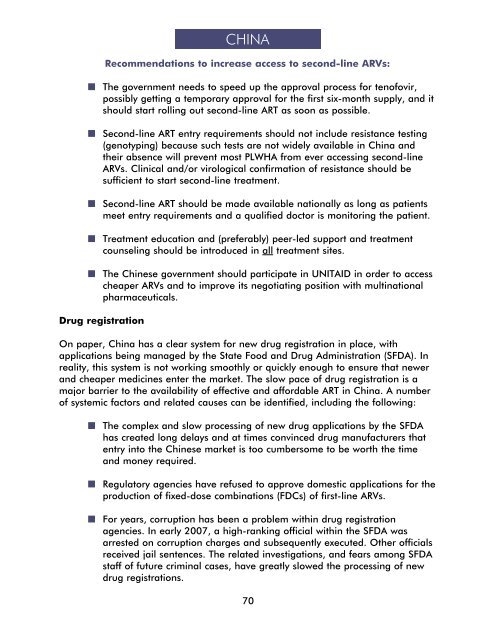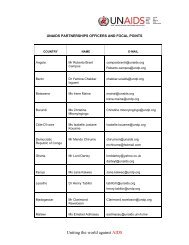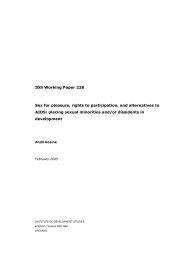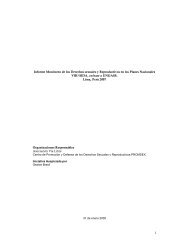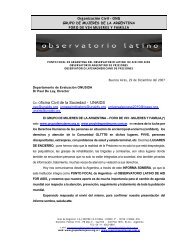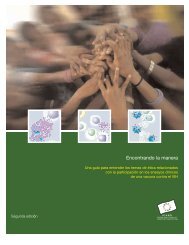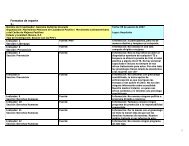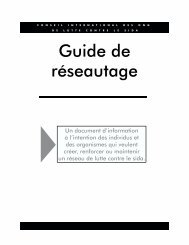Missing the Target #5: Improving AIDS Drug Access ... - CD8 T cells
Missing the Target #5: Improving AIDS Drug Access ... - CD8 T cells
Missing the Target #5: Improving AIDS Drug Access ... - CD8 T cells
Create successful ePaper yourself
Turn your PDF publications into a flip-book with our unique Google optimized e-Paper software.
Recommendations to increase access to second-line ARVs:The government needs to speed up <strong>the</strong> approval process for tenofovir,possibly getting a temporary approval for <strong>the</strong> first six-month supply, and itshould start rolling out second-line ART as soon as possible.Second-line ART entry requirements should not include resistance testing(genotyping) because such tests are not widely available in China and<strong>the</strong>ir absence will prevent most PLWHA from ever accessing second-lineARVs. Clinical and/or virological confirmation of resistance should besufficient to start second-line treatment.Second-line ART should be made available nationally as long as patientsmeet entry requirements and a qualified doctor is monitoring <strong>the</strong> patient.Treatment education and (preferably) peer-led support and treatmentcounseling should be introduced in all treatment sites.The Chinese government should participate in UNITAID in order to accesscheaper ARVs and to improve its negotiating position with multinationalpharmaceuticals.<strong>Drug</strong> registrationCHINAOn paper, China has a clear system for new drug registration in place, withapplications being managed by <strong>the</strong> State Food and <strong>Drug</strong> Administration (SFDA). Inreality, this system is not working smoothly or quickly enough to ensure that newerand cheaper medicines enter <strong>the</strong> market. The slow pace of drug registration is amajor barrier to <strong>the</strong> availability of effective and affordable ART in China. A numberof systemic factors and related causes can be identified, including <strong>the</strong> following:The complex and slow processing of new drug applications by <strong>the</strong> SFDAhas created long delays and at times convinced drug manufacturers thatentry into <strong>the</strong> Chinese market is too cumbersome to be worth <strong>the</strong> timeand money required.Regulatory agencies have refused to approve domestic applications for <strong>the</strong>production of fixed-dose combinations (FDCs) of first-line ARVs.For years, corruption has been a problem within drug registrationagencies. In early 2007, a high-ranking official within <strong>the</strong> SFDA wasarrested on corruption charges and subsequently executed. O<strong>the</strong>r officialsreceived jail sentences. The related investigations, and fears among SFDAstaff of future criminal cases, have greatly slowed <strong>the</strong> processing of newdrug registrations.70


